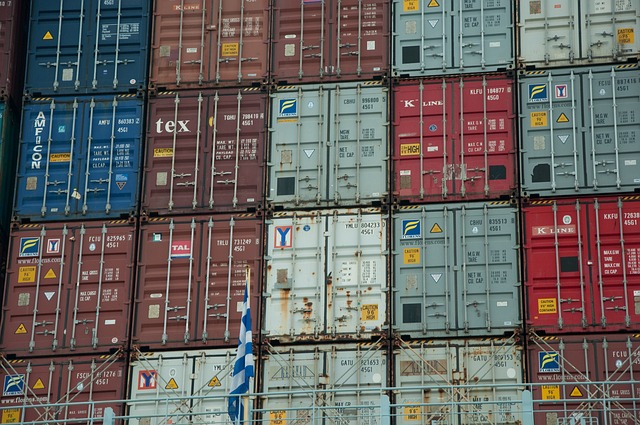-
20 shipping lines signed up with Container Ledger Account since its pilot-testing in December 2021
-
The online system aims to speed up container deposit refund
-
CLA currently has 559 subscribers: 180 consignees/freight forwarders and 379 customs brokers, container freight station, and warehouse operators
-
The system handled container deposit refund for 5,587 twenty-footers in Jan-July 2023, a jump from only 742 year-on-year
-
Average refund time for CLA users is less than three days from the shipping lines’ approval
Twenty shipping lines are now signed up with Container Ledger Account (CLA), an online system that aims to simplify and speed up container deposit refund.
Joining the list of shipping lines/agents using the system are COSCO Shipping Lines (Phils.) Inc., Sinotrans (Uni-ship), Hyundai Merchant Marine (Philippines) Co. Inc., and Kyowa Shipping Lines (Skybest Logistics), CLA Philippines (CLAP) told PortCalls in an email.
The 16 other shipping lines are:
- BLPL Singapore
- CK Line
- Concorde Container
- Eagle Express Lines, Inc. (RCL South Phils.)
- Federated Cargo Line
- Lancer Container
- Macro Ocean Philippines, Inc.
- MBF Carpenters
- New Zealand Line
- Oceanus Container
- OOCL Philippines Inc.
- Samudera Shipping
- Sarjak Container Lines
- Southern Star Agencia Maritima, Inc. (Namsung Shipping)
- KMTC (Phils.) Corp.
- RCL Feeders Phils. Inc.
CLA now has 559 subscribers, broken down into 180 consignees/freight forwarders and 379 customs brokers, container freight stations, and warehouse operators.
In the first seven months of 2023, CLA handled container deposit refund for 5,587 twenty-foot equivalent units (TEUs), 653% jump from just 742 in the same period last year.
The current average refund time of CLA is less than three days after approval by the shipping lines, according to CLAP.
New enhancements to CLA have been implemented, CLAP said. These include generation of billing invoice via the portal, searchable bill of lading number in reports/transaction history, uploading of invoice via Microsoft Excel from the shipping lines, automatic computation of withholding tax, application of Philippine Economic Zone Authority withholding tax, and an upcoming electronic receipt this month.
CLA is a system that simplifies container deposit management between the shipping line and consignee/agent. A voluntary system, it began pilot-testing in the Philippines in December 2021.
The Department of Transportation and Department of Trade and Industry have endorsed CLA and urged members of the Association of International Shipping Lines (AISL) to join in order to address the long-standing issue on container deposits. AISL has a membership of 36 global container liners calling Philippine ports.
RELATED READ: DTI, DOTr push Container Ledger Account use to carriers
AISL tapped Malaysia-based D&D Control (M) Sdn Bhd to introduce its product CLA to the Philippine market. CLA has been in use in Malaysia since 2018. Malaysia has had its share of issues with the return of container deposits.
CLA can help manage container deposit online or replace the deposit with a one-time security payment.
The system aims to reduce procedures, time, and costs; improve competitiveness, and level the playing field for big, medium and small organizations. It also aims to remove the administrative burden of shippers, who have to prepare various documents to claim their container deposit from shipping lines.
Through CLA, users can provide the container deposit or a security amount for use with all their containers regardless of the shipping line.
CLA has also proposed its CLA Credit to the Chamber of Customs Brokers Inc.
CLA Credit is available to VIPs of shipping lines and users with high volumes of containers. Industry associations can also take advantage of CLA Credit, which allows the association to provide a guarantee so its own members won’t have to provide a deposit or security individually.
The return of container deposits is one of the long-standing issues in the shipping industry and has been the subject of numerous meetings and discussions. The government tried to address the issue via a joint administrative order on local charges by international shipping lines, but the order did not materialize.
The Philippine Ports Authority also issued Administrative Order No. 04-2021, which requires a container insurance policy in lieu of the container deposit for foreign containers. Implementation of this policy has been deferred indefinitely due to widespread opposition from stakeholders and business groups.
In the 18th Congress, the House of Representatives approved on third and final reading House Bill No. 10575, which seeks to strengthen government agencies’ oversight functions over shipping charges imposed by international shipping lines operating in the Philippines. The bill failed to become law. A similar measure is pending in the current Congress. – Roumina Pablo









